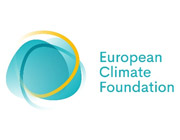
Peter Sweatman, Author
A stakeholder network can provide Spanish SMEs access to the tools to develop robust climate action plans
Published in November 2023
Spanish SMEs contribute 61.5% of Spain's gross value added, generate 62.89% of employment and account for 99.9% of the business fabric (a total of 2,926,955 companies). Clearly, mobilising and supporting the decarbonisation of SMEs is therefore essential to achieve the goal of net zero emissions in Spain and Europe by 2050, while ensuring a fair and stable economic and employment transition.
The main challenge of mobilising decarbonisation in SMEs stems from their size, local dispersion and granularity - there are almost 3 million in diverse sectors and distributed across the different regions of Spain. Since 2022, we have engaged with over 90 business platforms from all Autonomous Communities and over a thousand SMEs (directly and indirectly) to understand the key levers to help address this challenge. Our main conclusion is the need to create a sustainability network of large companies, banks, business platforms, accountants, and public officials focused on providing local support to SMEs through access to climate training, tools to develop robust climate action plans and funding to implement them.
Our research shows that there is a significant coordination gap between these actors that needs to be filled with a national strategy where the public administration acts as the facilitator. To this end, the Pact Activating SMEs x CLIMATE and RESILIENCE was launched to create a sustainability network in Spain that connects these private and public sector actors.
Selected report’s key recommendations include:
Milestones include:
